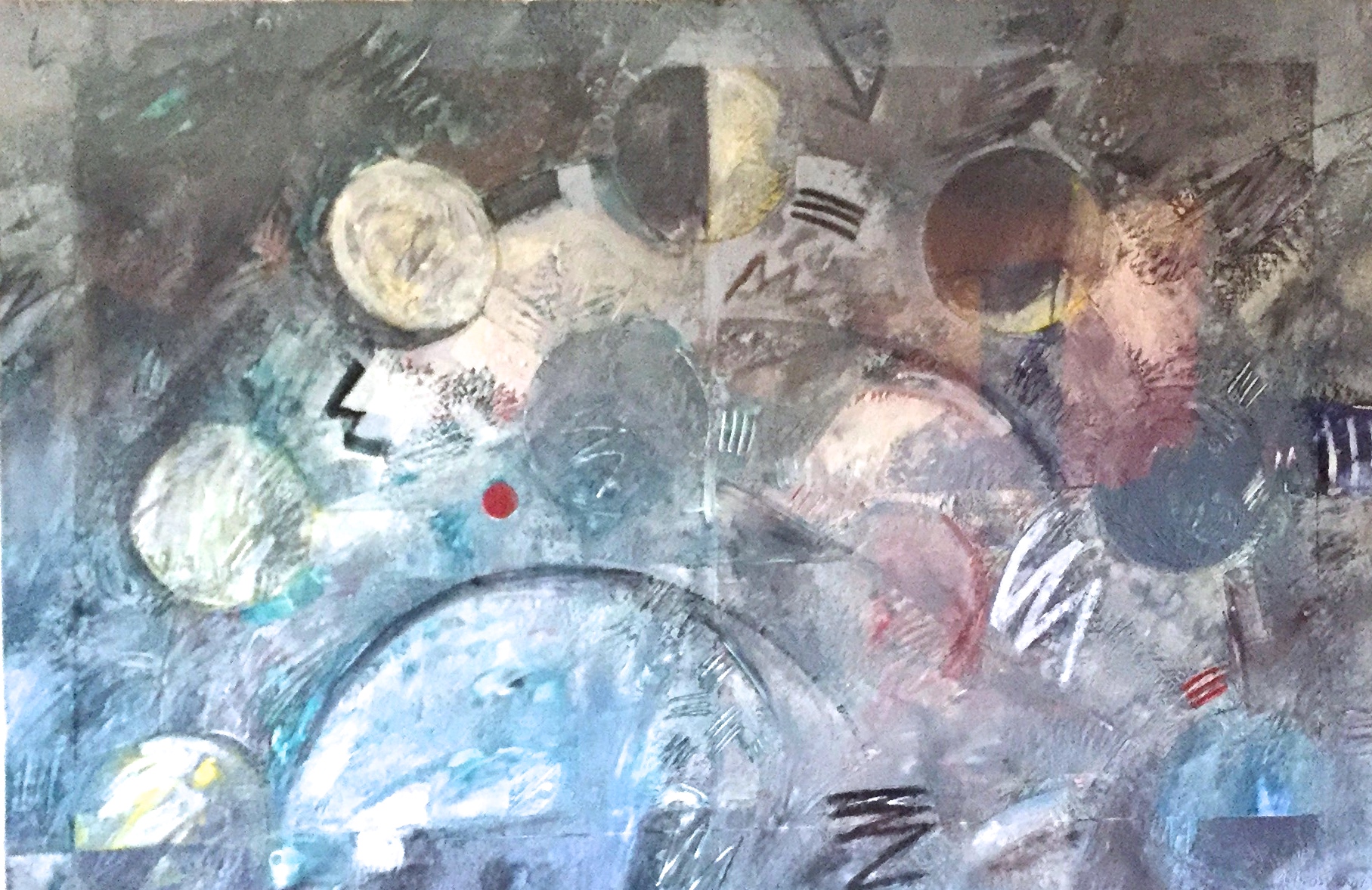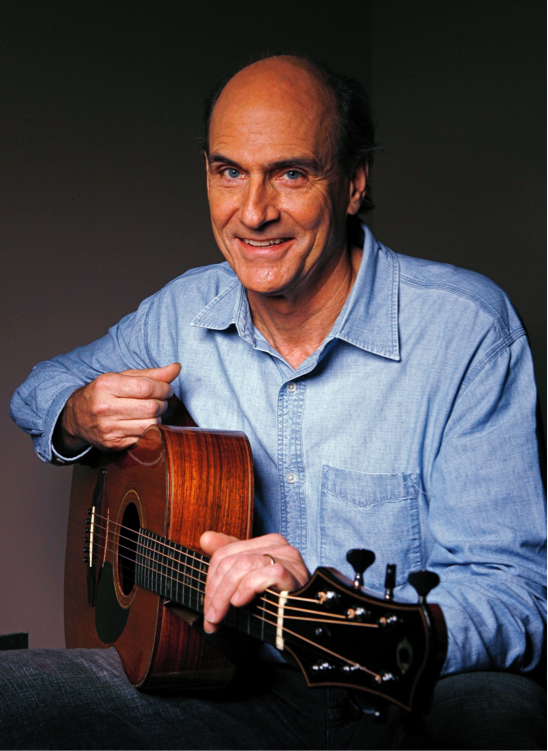There was an art gallery exhibition and reception years ago in Sun Valley, and the featured artist was my former wife Abby Grosvenor. At the time of the opening I was recovering from a neuromuscular illness and only able to sit on the sidelines while the gallery goers milled around looking at the art. In retrospect it was an excellent way to observe the art, the atmosphere, and the people attending.
Lunar Cycle (1986)
Because of my limited mobility I was given a chair and seated next to the chamber music trio playing at the event. The women of the trio were very friendly and between numbers we chatted briefly. After a particularly beautiful piece I remarked on how much I liked it. Without dropping a quarter note the violinist assertively told me, “You can’t beat Haydn.” She was right and every time I hear Haydn I remember her statement and the evening.
Yesterday I was reminded of both Haydn and her remark as I was trying to teach myself James Taylor’s Handy Man on the guitar. I’d say James deserves the same compliment the violinist gave Haydn. I never tire of James or his music, and though I’m not a serious musician I’d argue that both Haydn and James are masters at making the complex sound simple. I can’t speak directly to the complexity of the Haydn compositions, but I’m sure the structure is more complicated than the simple melodic line many of the trios and quartets deliver.
That musical epiphany came when I finally started taking guitar lessons and trying to duplicate what I heard from performers I admire. For 50 years I struggled to teach myself, and though the effort wasn’t very successful I did get to the point where the pleasure of playing overcame the pain of learning. I like to tell kids who are learning a game or an instrument that if they stick with it for awhile they will arrive at the tipping point where the pleasure derived is greater than the frustration of non-achievement. It’s been true for me in tennis and writing as well as the guitar. Ironically, at 78 I’ve started taking lessons in all three disciplines now. Better late…
As they say in the mutual fund prospectuses, “Past performance is not a guarantee of future results.” As far as past performance goes my own prospectus is thin; I was OK at the guitar, a little above average at tennis, and incomplete as a writer. I wasn’t as good as I wanted to be in any of the three. I hope the lessons I’m taking now, which I enjoy but dreaded as a child, will improve future performance.
As a lifelong consumer of folk, folk-rock, and original singer-songwriter music I didn’t grasp how complex some of it is in composition and execution. For instance, in Taylor’s song Your Smiling Face there are 6 chord changes in one 8 bar measure. My fingers just can’t change that fast, but in countless live performances I’ve watched James move fluidly and pick each note in a seemingly effortless display of dexterity. Like Roger Federer’s tennis, what seems effortless is the product of great talent and countless hours of repetition and practice. I’ll never get there, but Roger and James are inspirations. I simplify the Taylor songs (and Federer strokes) to learn them, and when I get them right it’s enormously satisfying. It’s a lesson in incremental progress.
I’ve also discovered that others of my favorite singer-songwriters share the same musicality and dexterity. There’s an old axiom in country music that you can play any country song if you can play 3 chords in the key of G. I call bullshit. Willie Nelson’s songs and guitar picking are every bit as complex as James Taylor’s or Haydn’s. And, so are the Beatles’.
Malcolm Gladwell writes that it takes roughly 10,000 hours of practice to achieve mastery in a field and cites the Beatles as an example. In the early 1960’s the Beatles went to Hamburg to play and work on their music. By 1964 when they burst on to the international music scene they had played over 1200 concerts in Hamburg. Practice makes perfect – if you add in creative genius and digital dexterity. There is no way I can coax my fingers into some of the chord configurations that are standard in the Beatles catalog, but I’m still working on it.
I heard James Taylor’s Sweet Baby James for the first time in 1970. Abby and I were living in Europe and two American girls we met in Italy played the album for us. I still enjoy it and each time it’s as if it were new to my ears. Genius plus dexterity plus practice equals incremental progress. Haydn, James, Willie, and the Beatles – complexity delivered simply.
Porto Ercole, Italy where I first heard James Taylor.
You can’t beat Haydn… or James.



































Yup. Russ wonders why I go over and over and over again a few notes on the violin to get them exactly right, just the most minute change in finger angle and pressure to improve the intonation and tone. I just keep at it, day after day, hour after hour. And I wonder why he goes to the driving range and practices swinging golf clubs to hit the balls where and how he wants them to travel. Same deal. Good for you for getting lessons, and keep at it!
XO